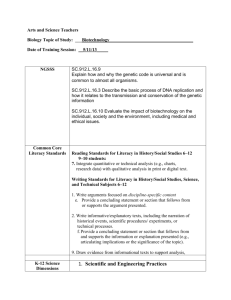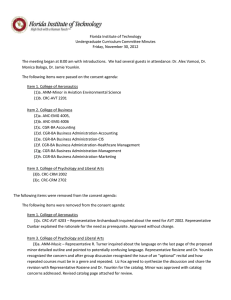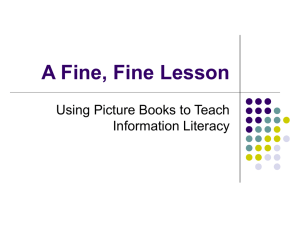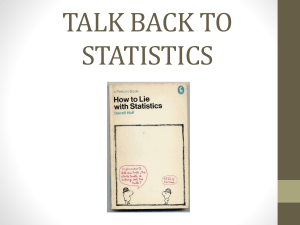Information Literacy and Research
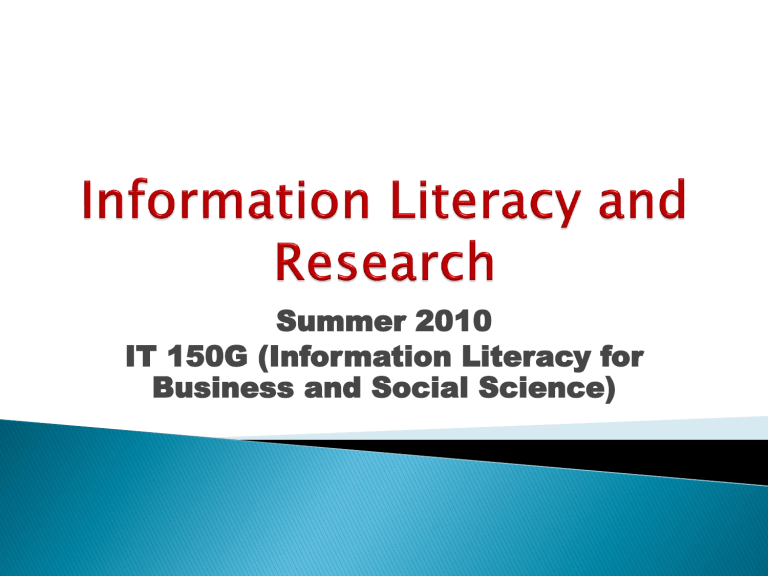
Summer 2010
IT 150G (Information Literacy for
Business and Social Science)
This is a new requirement in Lower Level
General Education designed to provide students with skills necessary:
To identify, to access and to utilize task appropriate information
To evaluate information sources and to apply good research strategies.
To access qualitative, quantitative, visual and auditory data sources
To understand the ethical use of data and gain respect for intellectual property.
This requirement replaces the Computer Literacy requirement (thru 2009-10 Catalog).
College of Business students met Computer
Literacy through a combination of business courses
(thru 2009-10 Catalog).
From 2010-11 Catalog onward, students will be required to satisfy the Information Literacy and
Research requirement.
◦ Probable designated transfer.
◦ Pre-requisite for some upper-level courses.
Transition Period (2-3 years)
The topics include:
How to list a citation for a college report
How to use and not abuse Wikipedia
How to search for material on the Internet
How to use library databases
How to incorporate graphics in your reports and presentations
How to enhance presentations with audio and visual material
The topics include:
How to use the power of social and collaborative computing
How to develop folksonomies in the workplace
How to avoid ethical and legal problems with
Internet material
The benefits and dangers of facebooking, texting and tweeting
Instructional Resources include:
Library Modules (Resource Group)
Paperback on Internet Search
Paperback on Social Computing
Blackboard
Librarians and the Library
The Internet
The course grading will include:
Tests and a final examination
Homework such as searching and assembling a bibliography
Building a wiki-reference for the course
Presenting a topic in class with appropriate
PowerPoint display
Some Off Label Benefits Include:
Guaranteeing Blackboard Access
Strengthening Computer Literacy Skills
Building Electronic Device Civility
Introducing Library Resources
Easing Term Paper and Presentation Assignments
Reducing Plagiarism
Building Information Life Skills
Supporting Research Methods Courses
Promoting Information Diversity






